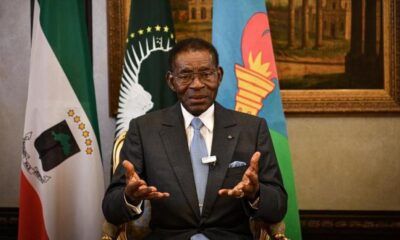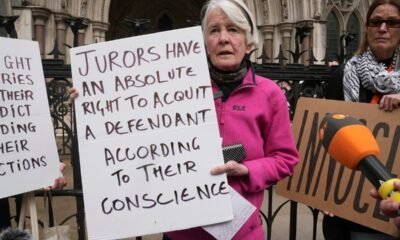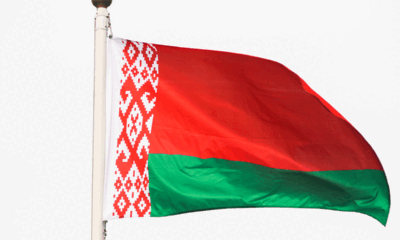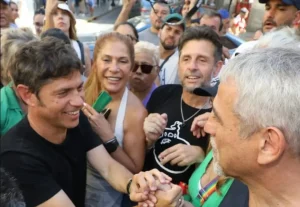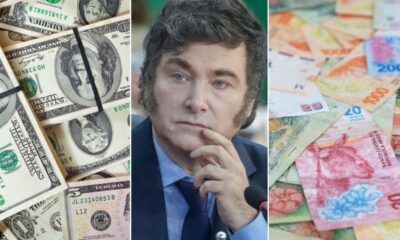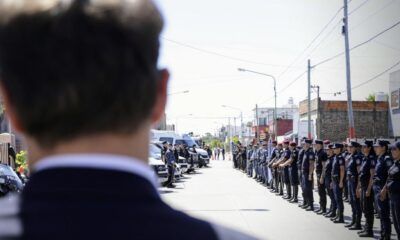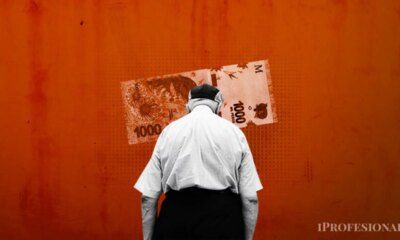INTERNACIONAL
Stabbed Ugandan gay rights activist blames political rhetoric for attack
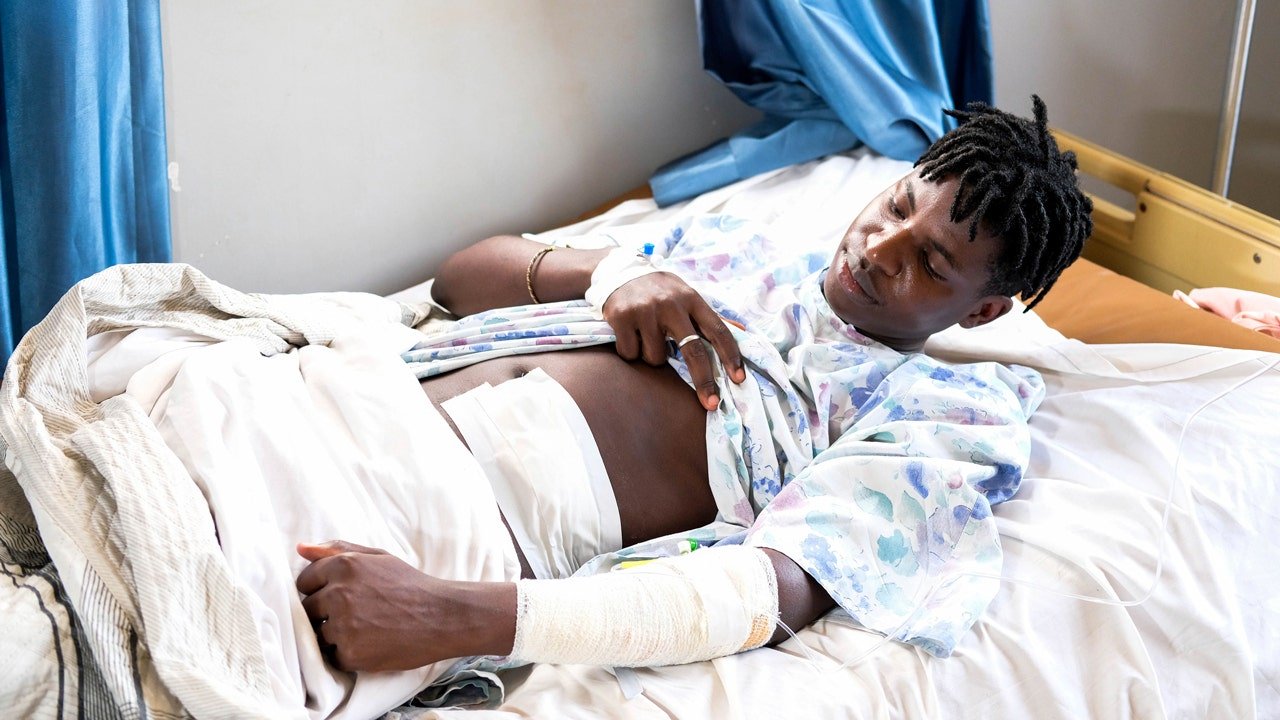
A well-known gay rights activist in Uganda who was stabbed by unknown assailants this week attributed the attack to what he described Thursday as a growing intolerance of the LGBTQ+ community fueled by politicians.
The climate of intolerance is being exacerbated by «politicians who are using the LGBTQ+ community as a scapegoat to move people away from what is really happening in the country,» Steven Kabuye said in an interview from a hospital bed on the outskirts of Kampala.
Two attackers on a motorcycle tried to stab Kabuye in the neck on Wednesday, and when he tried to shield himself the attackers stabbed him in the right arm and stomach, police said. A video posted on the social media platform X shows Kabuye on the ground writhing in pain with a deep wound to his right arm and a knife stuck in his belly.
PROMINENT UGANDAN GAY RIGHTS ACTIVIST CRITICAL AFTER STABBING
Kabuye said Thursday that he believes the attackers were trying not just to wound him, but to kill him, and that he fears his enemies might even target him in the hospital. «I don’t know who to trust right know,» he said.
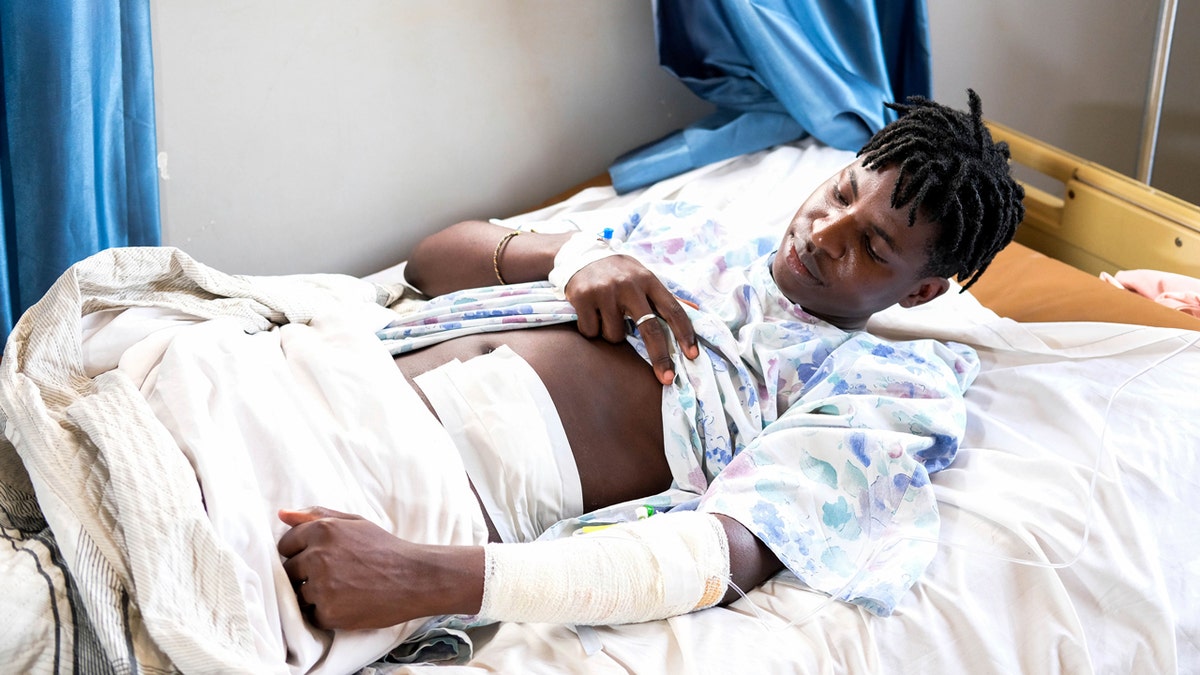
Steven Kabuye is hospitalized in Kitende, Uganda, Thursday, Jan. 4, 2024 (AP Photo/Hajarah Nalwadda)
Kabuye is the executive director of the advocacy group Colored Voice Truth to LGBTQ. He had gone into exile in Kenya last March after receiving death threats following an attack on one of the members of the group, organization advocacy officer Hans Senfuma said. Kabuye had returned to Uganda on Dec. 15.
In May, Uganda’s president signed into law anti-gay legislation supported by many in Uganda but widely condemned by rights activists and others abroad.
The version of the legislation signed by President Yoweri Museveni doesn’t criminalize those who identify as LGBTQ+ — which had been a key concern for some rights campaigners. But the new law still prescribes the death penalty for «aggravated homosexuality,» which is defined as sexual relations involving people infected with HIV, minors and other categories of vulnerable people.
Kabuye had posted on X that he was deeply concerned about the consequences of Uganda’s Anti-Homosexuality Act 2023.
CLICK HERE TO GET THE FOX NEWS APP
«This law violates basic human rights and sets a dangerous precedent for discrimination and persecution against the LGBTQ+ community. Let us stand together in solidarity and fight against bigotry and hate,» he said.
INTERNACIONAL
Mexican cartels targeting Border Patrol agents with kamikaze drones, explosives amid Trump crackdown: report
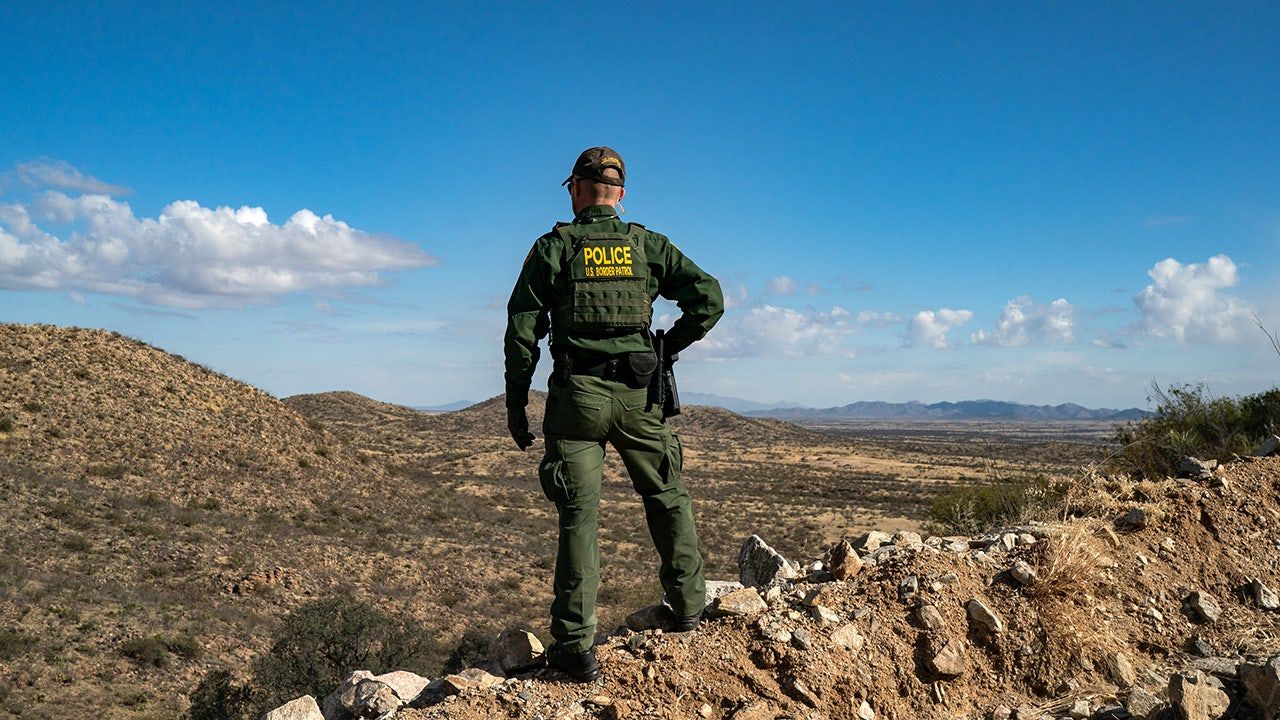
Mexican drug cartels are ordering their members to target U.S. Border Patrol agents with kamikaze drones and other explosives amid a crackdown at the southern border by the Trump administration.
An internal memo titled «Officer Safety Alert» cited social media posts and other sources for the warning to federal agents, the New York Post reported. Agents were reminded to be «cognizant of their surroundings» and should be wearing their ballistic armor and utilizing their long firearms.
MEXICO AGREES TO DEPLOY 10,000 TROOPS TO US BORDER IN EXCHANGE FOR TARIFF PAUSE
Rival drug cartels exchange gunfire in Mexico. (Fox News) (Fox News)
«On February 1, 2025, the El Paso Sector Intelligence and Operations Center (EPT-IOC) received information advising that Mexican cartel leaders have authorized the deployment of drones equipped with explosives to be used against US Border Patrol agents and US military personnel currently working along the border with Mexico,» the memo, obtained by the newspaper, states.
«It is recommended that all US Border Patrol agents and DoD personnel working along the border report any sighting of drones to their respective leadership staff and the EPT-IOC,» it said.
Fox News Digital has reached out to the U.S. Border Patrol, U.S. Customs and Border Protection (CBP) and U.S. Immigration and Customs Enforcement (ICE).
News Nation, which first reported the memo, reported TikTok posts and other social media sites used by Mexican drug cartels have also advised illegal immigrants to spit and urinate on ICE agents and defecate in their vehicles.
Other posts have urged assassins to target border personnel.
NEW SECRETARY OF STATE MARCO RUBIO PAUSES REFUGEE OPERATIONS, RAMPS UP VISA VETTING
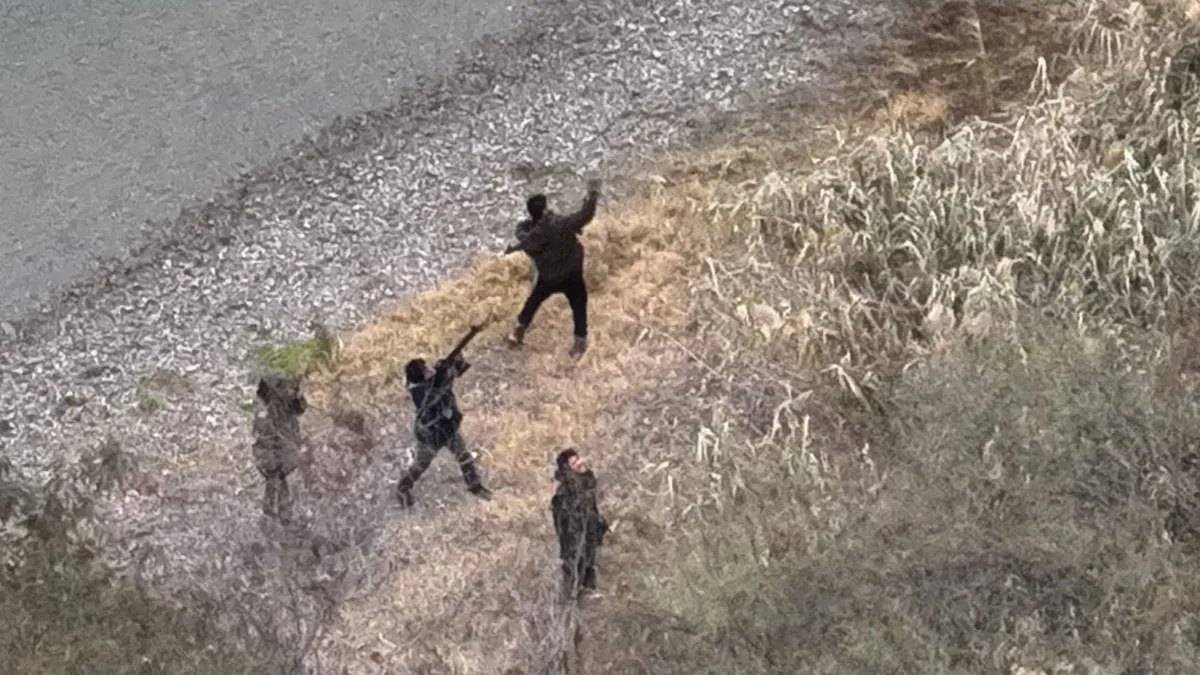
U.S. Border Patrol after agents received gunfire from cartel members in Mexico while patrolling in Fronton, Texas last week. (Texas Department of Public Safety)
Last week, Border Patrol agents received gunfire from cartel members in Mexico while patrolling in Fronton, Texas, the Texas Department of Public Safety said. The cartel members fled Mexico because of a military presence and sought refuge on an island between Mexico and the U.S., DPS said.
The warning comes as the Trump administration has launched deportation raids targeting illegal immigrants with criminal records and enacted tougher measures to secure the southern border.
Cartel leaders have realized a proactive U.S. presence on the border could cut into their drug and human smuggling profits, the memo showed, according to the Post.
Last week, U.S. Sen. Mike Lee, R-Utah, suggested the idea of the U.S. green-lighting private parties to target drug cartels for profit.
«Congress could issue letters of marque and reprisal authorizing private security firms or specially trained civilians to intercept cartel operations, particularly those involving drug shipments or human trafficking across borders,» Lee wrote on X. «Focus on disrupting supply lines, capturing high-value targets, or seizing assets like boats, vehicles, cash, gold, or equipment used in criminal activities.»
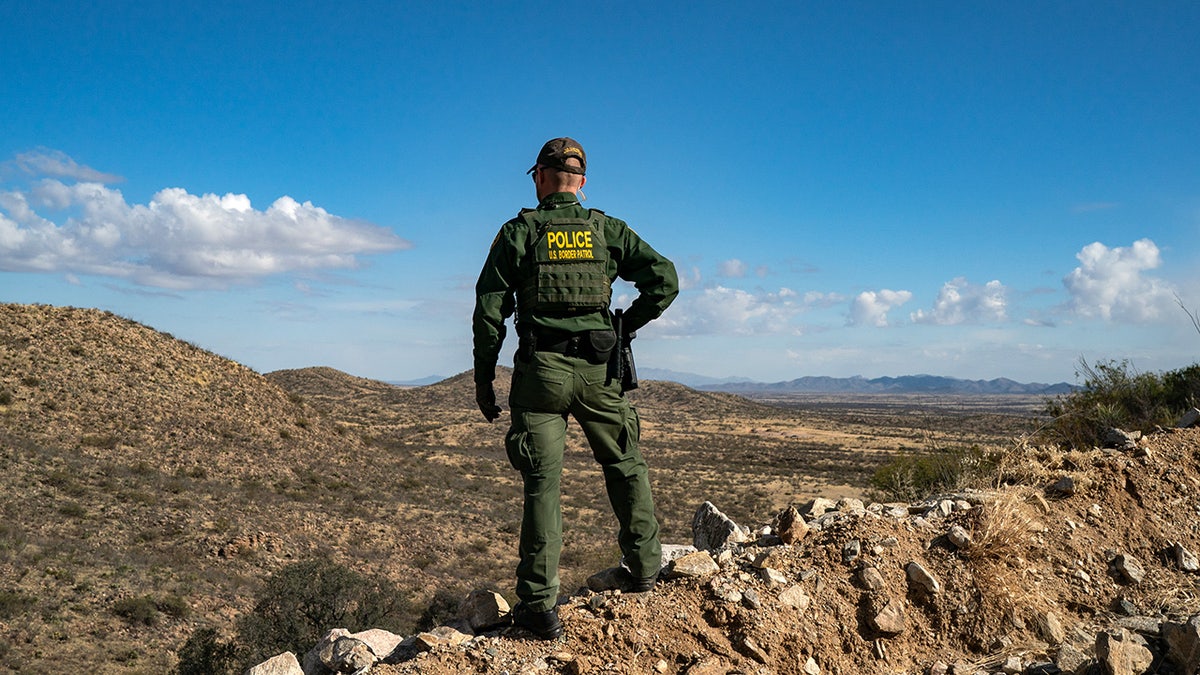
A U.S. Border Patrol agent stands on a cliff looking for migrants that crossed the border wall between the U.S. and Mexico near Sasabe, Arizona. Agents are reportedly being targeted by Mexican drug cartels amid a crackdown by the Trump administration to secure the southern border. (Salwan Georges/The Washington Post via Getty Images)
CLICK HERE TO GET THE FOX NEWS APP
Lee suggested it would lower costs to American taxpayers, since privateers would be paid a portion of what they capture and bring back to the U.S.
-
POLITICA2 días ago
Denuncia judicial contra Axel Kicillof por la crisis de inseguridad en la provincia de Buenos Aires
-
SOCIEDAD1 día ago
Conurbano salvaje. Hallaron muertos debajo de un puente a dos adolescentes que habían desaparecido el jueves
-
POLITICA3 días ago
El Gobierno cruzó a Axel Kicillof por la inseguridad en la Provincia: “Este es el garantismo kirchnerista”
-
POLITICA14 horas ago
Guillermo Francos cargó contra Kicillof tras el doble crimen de Florencio Varela: «La Provincia está incendiada por la inseguridad»
-
POLITICA2 días ago
Un presidente a contramano que esta vez prefirió pisar el freno
-
ECONOMIA2 días ago
El método para empezar invertir si te faltan 10 años para jubilarte





